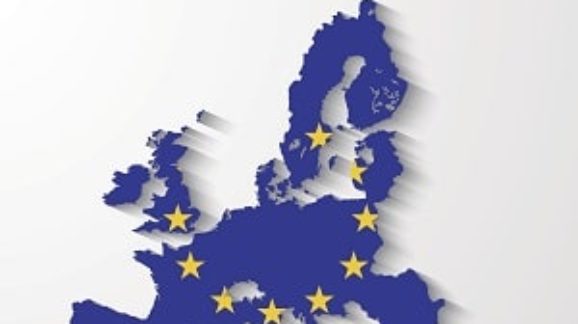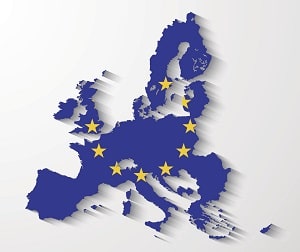Huge Questions Remain in Brexit Debate

 It is now looking as if the June 23rd vote on whether Britain will leave or remain in the European Union is too close to call. This is a significant change from a few weeks ago, when “remain” had a strong lead in the polls. Newer polls are showing “leave” with the advantage. Yet very important questions still remain. If the vote is to leave, what happens next? What will happen to the EU? And if the vote is to remain, what happens to the free market voices that have pushed strongly for exit?
It is now looking as if the June 23rd vote on whether Britain will leave or remain in the European Union is too close to call. This is a significant change from a few weeks ago, when “remain” had a strong lead in the polls. Newer polls are showing “leave” with the advantage. Yet very important questions still remain. If the vote is to leave, what happens next? What will happen to the EU? And if the vote is to remain, what happens to the free market voices that have pushed strongly for exit?
First of all, we should note that the polls in the UK’s general election last year were off the mark. A huge question mark accordingly hangs over whether or not current polls are accurately reflecting public sentiment. Assuming that they are in the right ballpark, however, the referendum is going down to the wire. It is often noted that, in referenda, the undecideds break very overwhelmingly to preserve the status quo, yet recent polls appear to suggest that undecideds have been breaking for “leave.” A leave vote is therefore now a very real possibility.
Why is this? It appears that people willing to vote leave have not been swayed by the argument that it will be bad for the economy, which has been the main thrust of what has been dubbed “Project Fear,” the set of arguments that Britain would be taking a leap into the unknown by voting for leave.
What really appears to have been doing the job for leave has been the argument that Britain has no control over its immigration policy thanks to the principle of free movement of people, one of the pillars of EU constitutional thought. This argument appeals as much to the working class left as it does to the right. It is anathema to the chattering classes of London, who take full advantage of free movement, that this is the case. Accusations of racism and ‘Little Englanders’ abound, but do little damage to the leave side. If Britain does vote to leave, it will be the immigration argument that wins the day.
That is not to say that there are no other arguments for Brexit. Filmmaker Martin Durkin summarized them brilliantly in his humorous and watchable “Brexit: The Movie” (which was crowdfunded, by the way).
Other strong arguments have been made by the likes of Michael Gove MP, Jacob Rees-Mogg MP and Daniel Hannan MEP. The doyens of British Euroskepticism, Christopher Booker and Richard North, have made much a less rhetorical and more rigorous case for leaving and how to do it in “Flexcit: The Movie.” Most of these arguments concentrate on the question of sovereignty, of which immigration control is a subordinate part. Former Top Chef judge Toby Young looks at the sovereignty argument in another short film.
Those interested in the case for remain should check out Britain Stronger in Europe. It may yet be that their arguments carry the day, but there is no one single argument that resonates the way immigration/sovereignty does for leave.
So what if Britain does vote to leave? In 2014, Rory Broomfield of The Freedom Association and I put together what we termed a “road map” for Britain to become a strong and successful economy outside the EU. It focused very much on the free market vision of what can happen rather than the process by which it would have to be negotiated. Taking into account the likely reasons embraced by the British public for withdrawal (we correctly identified immigration as one of the main reasons), we suggested that Britain should move towards unilateral free trade. Open Europe’s careful economic analysis agreed that this approach would bring substantial welfare benefits in the medium to long run.
However, this is unlikely to happen. There is a clear remain majority in Parliament, and it is Parliament and Her Majesty’s Government (which has been campaigning for remain) that will be given the task of implementing the referendum result. Parliament and HMG will invoke Article 50 of the EU Treaty and will then commence a two year process of negotiating the exit. It is likely that the first step will be embrace something like Norway’s relationship with the EU, which as it happens is very popular with voters. What happens after that is difficult to foresee at this stage, especially given likely vindictiveness by European leaders. It is probable that something like Richard North’s Flexcit plan will need to be adopted to ensure that the UK does not remain “stuck” in the Norway Option (although that option is popular with Norwegians) and immigration concerns are properly addressed.
Turning now to the EU, there is a reason for that possible vindictiveness noted above. Brexit represents an existential threat to the EU as it is currently organized. Liberals (in the European sense) worry that a vital voice for free markets will be lost. Socialists worry about a crack in transnational solidarity. Eastern and Southern Europeans worry about Germany gaining even more power over the institutions. Germany worries that a strong economy will depart and it will need to carry more of the burden of the EU’s failing economic structure. Everyone in Brussels worries about other Euroskeptic countries following Britain’s lead. National leaders in France and Italy worry about their Euroskeptic minorities becoming majorities. The threats of “nationalism” and “populism” are on everyone’s lips. Simply put, there is no good scenario for Europe if Britain leaves. It is therefore likely to be in the political interests of European leaders to be as vindictive as possible towards Britain, whatever the possible loss in trade and markets will do to the EU’s already weak economy. This may mean no Norway option or free trade deal within two years (whatever the requirements of the EU Treaty).
So a vote to leave may well just be the beginning of a prolonged period of uncertainty. What of a vote to remain?
Although a vote to remain will probably be the last time in a generation that the question is put to voters, there will still clearly be a large segment of the British people in favor of out. These voters will likely be joined by growing segments of continental European voters as the trend towards nationalism that can be seen in several recent elections picks up. A remain vote would simply paper over these growing cracks.
While some might see a “remain” vote as akin to being trapped in a loveless marriage (with a potentially abusive partner), there is another way of looking at it. Free marketers in Britain should therefore look to engage wholeheartedly in European matters, putting forward strong reform proposals and treating Brussels as the important center of European governance that it is and will continue to be, rather than an irrelevant appendage to national politics. The aim should be to ensure that the forces of nationalism are harnessed towards economic competition rather than to populist autarky. EU leaders often talk about a “United States of Europe.” They could learn much from American-style competitive federalism rather than the harmonizing federalism they have espoused to date. If British influence can achieve that, then the dark cloud of a remain vote will have a silver lining.